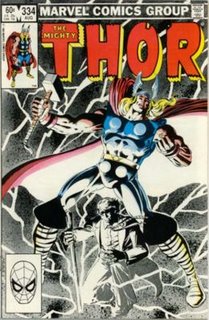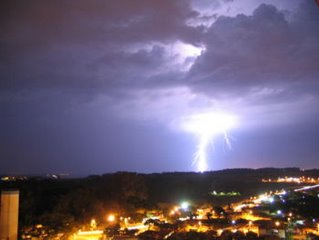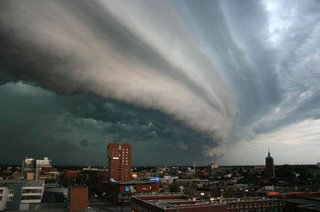
MYTH
Marvel Comic fans will recognize “The Mighty Thor” a superhero created in the 1960’s. This comic book character is loosely based upon the Nordic, Germanic Myth of “Thor, god of thunder.” He is son of Odin and protector of Asgard (dwelling of the Nordic pantheon) and Midgard (the dwelling of humans). The “thunder gods” are often warrior figures. They are often also the protectors of the innocent, as well as the most powerful among the gods. “There is thunder in his footsteps and lightning in his fist.” This is a common image in Mythology.


AWE AND WONDER
If you were an ancient inhabitant of this planet we call earth who lived in a sod hut, a pole dwelling covered with animal skins or even if you made your home in a cave, no doubt you would be awed by thunder and lightning. The truth is that only a few nights ago lightning struck only a short distance from my home. The thunder shook my house and rattled my windows. I lurched upright in bed, awakened by the explosive force of the thunder. To be in awe of such power is not something reserved for only ancient humans. It is something modern man also fears and respects.
APPLICATION
God thunders and the mountains crumble. The Lord breathes upon the sea and its waves cover the land. The Lord hurls his lightning bolts and the cedars of Lebanon split apart. The earth quakes and the heavens shiver as the chariot of the Lord speeds across the heavens. “Behold, he comes riding on a cloud…” or so the song tells us. We experience his awesome presence and behold his glory.
Psalm 29 continues an overall theme, which we have addressed in these early Psalms. It is a reoccurring theme throughout the Psalter. This theme is one of worship and praise to Yahweh. This Psalm is also call the Song of Thunders. It is clear from this Psalm that its writer has a God-centered world view. The Lord is presented as a God of wonders (majesty) and glory. The voice of God is heard in seven thunders. At his voice, there are Earthquakes, Floods, Thunderstorms and Hurricane force winds.
- Call to Worship (verses 1-2 &9b)
- Presence of God is evident (verse 3).
- Power of God is revealed (verse 4-9). Notice the verbs.
Breaks
Makes
Strikes
Shakes
Twists
Strips - Protection of God is known (verse 10).
- Peace of God is experienced (verse 11).
Just somethings to think about on the way.
Bob
No comments:
Post a Comment